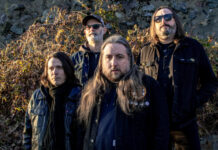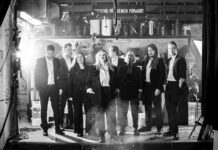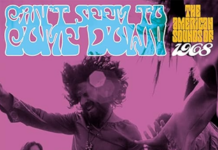Caravan along with The Soft Machine, are now the ‘last men standing’ from the fabled ‘Canterbury Scene’ of the late 60’s-mid 70’s, still recording albums and still gigging. In their early days both bands were an integral part of the late 60’s ‘underground’ playing iconic venues like UFO and Middle Earth. Though, to be fair, Caravan were never the ‘darlings’ of the underground like the Soft Machine, whose tendency to go off on long extended stoned jams endeared them to audiences far more than Caravan. As Robert Wyatt said “Stoned bands playing for stoned fans made for some interesting times”.
I approached this book with some degree of curiosity as, interest declared, coming from the Canterbury area and being old enough to have seen both bands in their prime, I was intrigued to read what Andy Boot had to say, and he says it well, going into detail about the changes the band go through in the seventies. He’s certainly prepared to offer some quite intriguing opinions concerning Caravan and their place in the scheme of things .. were Caravan really the 10cc of Prog Rock?
This writer’s take on Caravan is, as a band, they’re two separate entities .. there’s the 1968-71 ‘classic’ line-up band of Julian ‘Pye’ Hastings (guitar/vocals), Richard Sinclair (bass/vocals), David Sinclair (keys/vocals) and Richard Coughlan (drums), who released three outstanding albums and helped define the ‘Canterbury sound,’ and then there’s the 1971 band onwards, with its different sound and a revolving cast of personnel.
The 68-71 line-up was all set to make the breakthrough but, as the book explains, factors such as poor management, constant gigging and internal tension combined to produce a situation where David Sinclair left after the release of their masterwork, In The Land Of Grey And Pink – the quintessential ‘Canterbury scene’ album, which featured David Sinclair’s twenty-three-minute epic, ‘Nine Feet Underground.’ Boot’s assertion of this piece as being deserving of reverence as a prog classic, more so than Genesis’ ‘Supper’s Ready’ will, I suspect, not find too many prog fans agreeing with him, but his explanation of why he believes this is credible and ought not to be dismissed outright.
After David Sinclair, in came Steve Miller (no, not that one) on electric piano, meaning the classic, almost definitive, Canterbury sound being left behind, and resulting in Waterloo Lily, a somewhat more jazz-infused album – which wasn’t too well received by fans, who preferred the scintillating Hammond organ based sound, after which Richard Sinclair, whose cherry wine vocals are surely amongst the best rock voices ever, leaves to form Hatfield & The North.
From here onwards, the Caravan story becomes a series of constant personnel changes, with amusing stories about why some musicians came and went, but Caravan never again coming close to making the breakthrough their earlier work merited. They continued to release albums during the seventies, with For Girls Who Grow Plump In The Night being the pick of them. By now Pye Hastings is the main songwriter, preferring to pursue a softer rock/pop approach. Plump had originally begun as his solo album till the record company persuaded him a Caravan album would sell better. It did, becoming their only album to enter the top 50. Caravan don’t fare well during the punk period, release a couple of poorly selling albums and then, apart from the occasional short reformation, go into a hibernation lasting until 1990, when the original band reforms for a TV performance, which goes so well they decide to continue. However, the Sinclair’s leave again soon after, and Caravan continued on without them and do so to this day.
This is an enjoyable read, though something about Caravan’s unique ‘Englishness’, no US band could’ve released an album like If I Could Do It All Over Again, .. would’ve been an interesting observation. But, despite all the music released after 1971, the enduring legacy of Caravan is, even today, at their gigs, the songs which draw the biggest cheers are usually those written wholly or partly by Richard Sinclair and/or David Sinclair during their classic period. Where but for Caravan would they be?























Nice review. Thanks… but could have got my name right…
Hey Andy, apologies about that! We’ve updated it. Congrats on the new book!
Apologies Andy, my bad !!